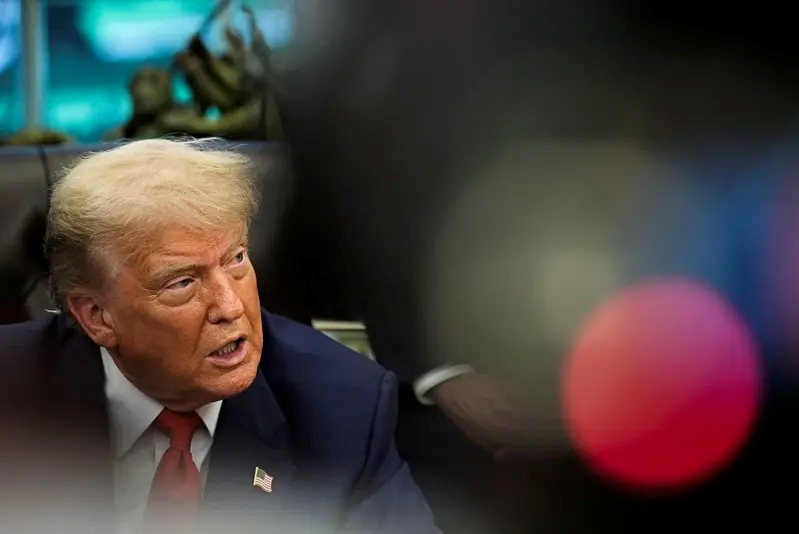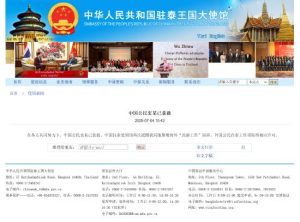Is Trump an “emperor”? Scholar: He is a dictator in the fields of diplomacy and national security

President Trump has only been in office for a few months, but he has brought about many major changes both at home and abroad. Elizabeth N. Saunders, a professor of political science at Columbia University, recently wrote in the journal Foreign Affairs that Trump is an “emperor-like president” at home and an “imperial emperor” internationally, and that the damage he has caused will last long after he leaves office.
Unlike some American media, Sanders did not attribute the problem to Trump’s personal characteristics or style of doing things, but specifically stated that there was something wrong with the American government system, and said that if the system is not improved and resolved, the future of the United States will be: more military mistakes, unpredictable trade relations, and erratic foreign policy.
Sanders said that the general environment in which Trump is now in power is that the checks and balances mechanism of the executive branch has almost completely collapsed, at least in the areas of foreign policy and national security.
Since the 9/11 terrorist attacks, the U.S. Congress has given the president more and more diplomatic powers, and has not taken back those powers, and the Supreme Court has been reluctant to impose any substantive restrictions. When Trump took office this time, he took over an expanding national security agency that operates almost unsupervised. In the years since he launched attacks on institutions in his first term in an attempt to further expand the presidency, Congress and the Supreme Court have blocked various attempts to limit presidential power. As a result, Trump can now basically do whatever he wants in foreign affairs or national security-related matters.
Trump sends undocumented immigrants to prison in El Salvador, he imposes high tariffs on countries around the world, he cancels foreign aid commitments authorized by Congress, bullies allies, cozys up to dictators, accepts lavish gifts from monarchies, and deploys troops on the streets of American cities… Sanders said that political scientists who study dictatorships understand that this is actually the foreign policy of dictators. The United States has never been a model of morality in its foreign relations, but the special nature of Trump’s second term makes it clear that previous US presidents have indeed been more restrained in foreign policy. And when the president governs without constraints, he is actually equivalent to a dictator in the field of national security – someone who can turn any impulse into policy at will.
Sanders’ article, titled “Emperor at home, emperor abroad-American foreign policy in the era of unrestrained presidential executive power,” was published on June 16, when Trump had not yet ordered the US military to strike Iran’s nuclear facilities.
It was not Trump who initiated this liberation of the power of the US president, but he is the biggest beneficiary of it. In previous US governments, Congress and the Supreme Court allowed the executive branch to have enormous power, but certain restrictions remained. Later, Congress did not hold Trump accountable for the Capitol Hill riots on January 6, 2021, and the Supreme Court’s decision to grant the president full immunity in 2024 destroyed the only remaining restrictions.
The article said that the position of the US president has long had an imperial color, but it was not until Trump’s second term that a president really tried to be an emperor. Trump destroyed the capabilities of the US government, damaged people’s trust and goodwill in the United States, and reciprocal tariffs dealt a heavy blow to US diplomacy. It is not easy to get rid of the impact of Trump’s second term, because not only the scale and scope of personnel loss far exceeds that of the first Trump administration, but also the loss of expertise in many fields, including scientific research institutions that are critical to American innovation.
Rebuilding the expertise and experience of the federal bureaucracy will be the work of a generation, not just one administration. When the crisis inevitably comes, the United States may no longer have the tools, the proficiency, the overall ability to deal with it.
Political scientists Steven Levitsky and Lucan Way wrote in the journal Foreign Affairs that the United States is sliding toward competitive authoritarianism—a system in which elections are held no matter how unfair they are, and dissent remains no matter how it is suppressed. Today, U.S. courts still impose some constraints on the president, especially in the field of domestic policy, but the final outcome of those challenges remains uncertain because many cases will eventually be appealed to the Supreme Court, whose composition favors Trump.
Sanders believes that this administration has only minimally complied with court orders and in many cases trampled on basic due process at such a speed that the courts have been unable to prevent the huge damage to individuals and institutions. The unchecked power of the president is an ominous sign for U.S. foreign policy and the world at large. What Trump’s second administration has done is by no means just to withdraw from international agreements and organizations. The nature of this new US government is irresponsible, illegal, opaque, corrupt, arbitrary, and erratic, which makes the United States a terrible partner.
Foreign governments, including allies, will never be complacent after Trump leaves office. An America that can change policies day after day, treat civil servants cruelly, take reckless actions to undermine basic institutions, and put shared secrets and assets at risk is not trustworthy.
In addition, if US institutions, especially Congress, cannot function properly – unable to pass important laws to commit and fund foreign policy institutions and priorities, unable to ensure that the budget passed by the legislature is properly implemented by the executive branch, and unable to check and balance presidential power, then US foreign policy will be completely subject to the will of each newly elected president.
Sanders said at the end of the article that no matter which party is in power in the future, the impact of Trump’s second administration on the future US foreign policy is profound. If Americans do not reflect seriously, they should expect that in a very uncertain future, the United States will have more military parades, more military mistakes, unpredictable trade relations, and erratic foreign policies.





